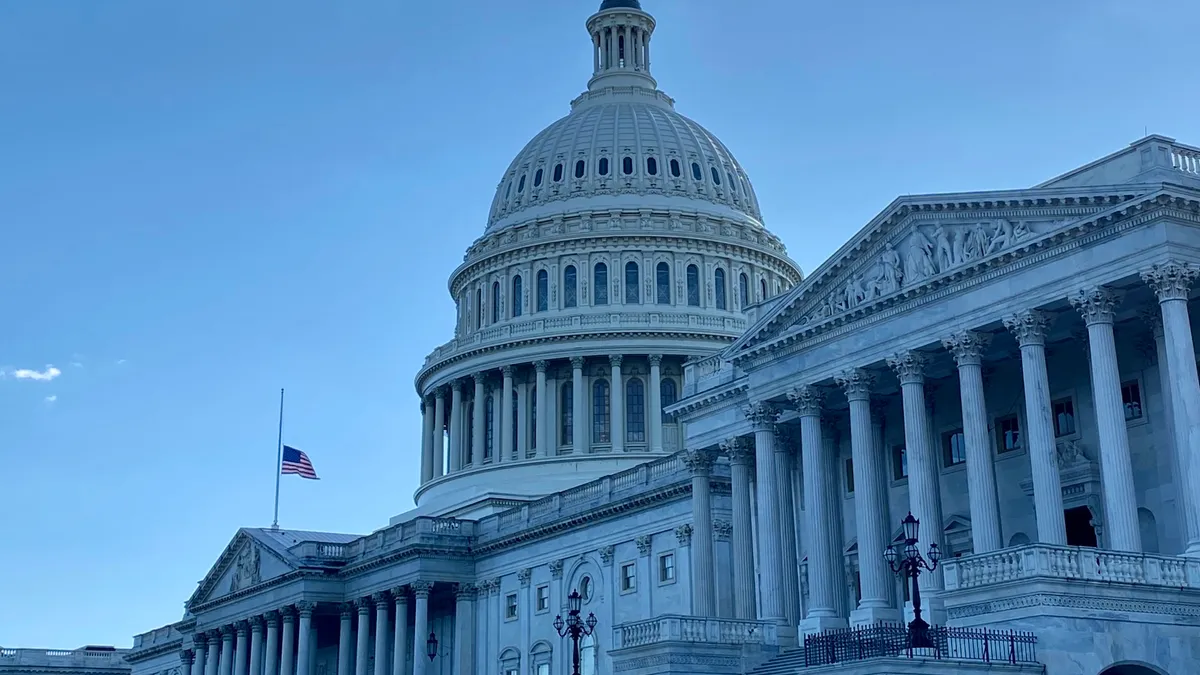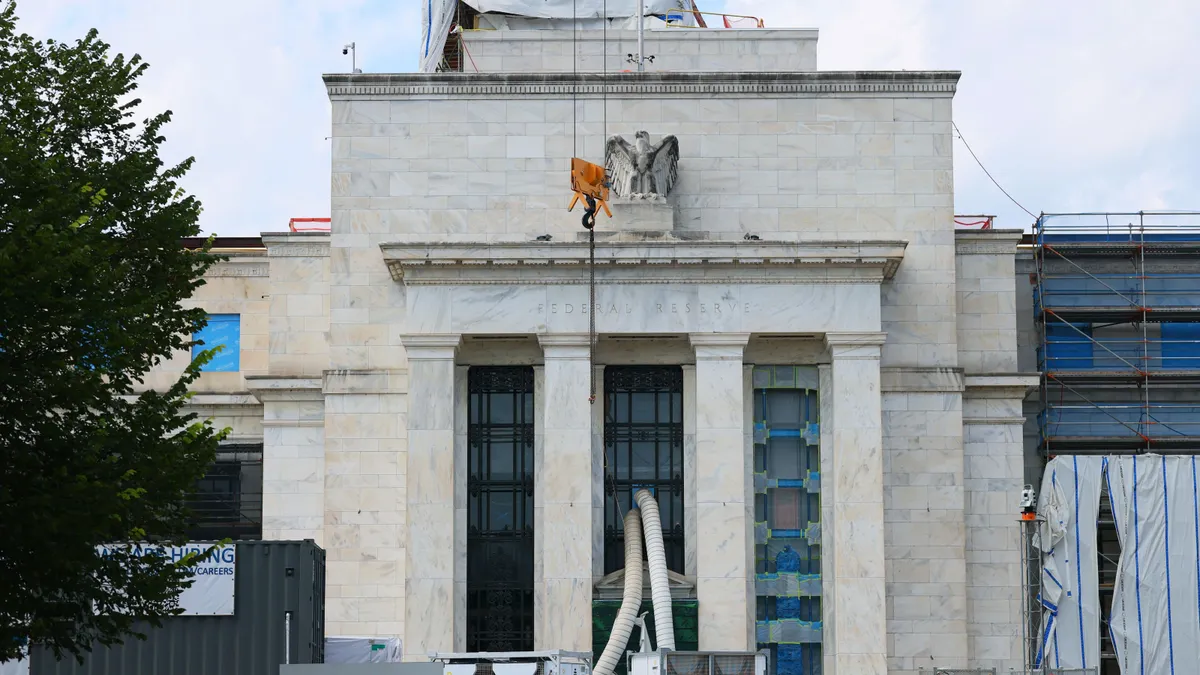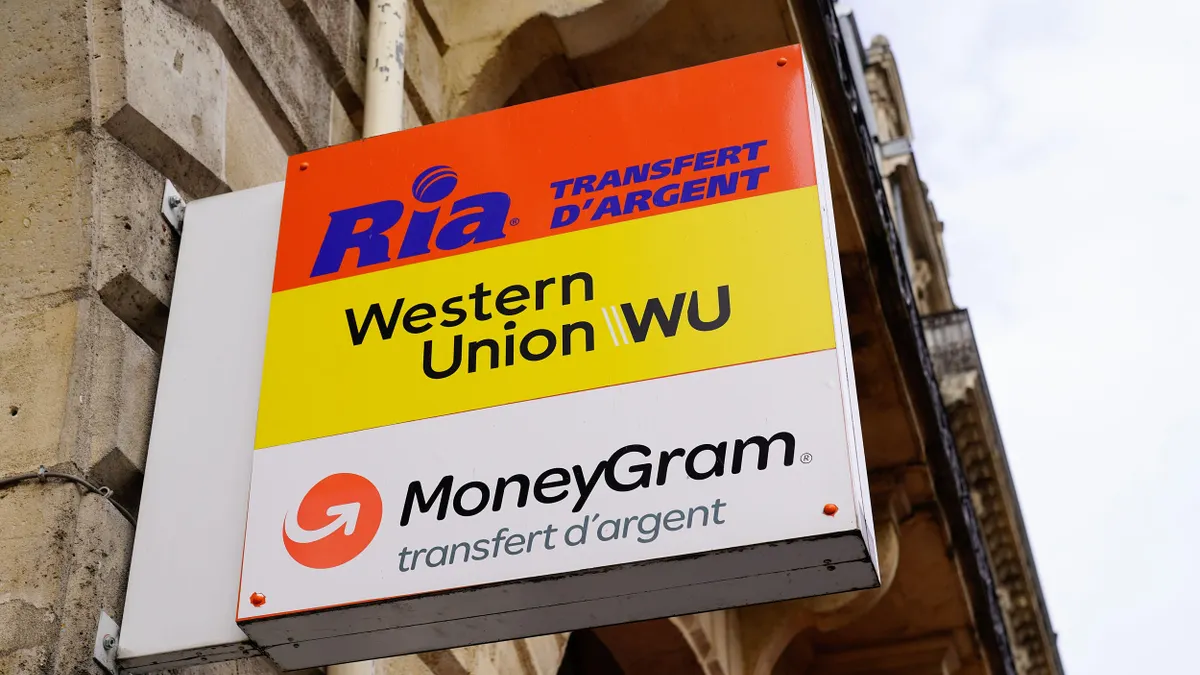A bipartisan group of four lawmakers implored Visa and Mastercard on Friday to cancel credit and debit card "swipe" fee increases planned for this month, warning them about practices that could raise antitrust concerns.
In an April 15 letter to the CEOs of Visa and Mastercard, the Democrats Sen. Dick Durbin (IL) and Rep. Peter Welch (VT) locked arms with Republicans Sen. Roger Marshall (KS) and Rep. Beth Van Duyne (TX) to discourage the companies from raising their network interchange rates.
"We urge you to withdraw your plan to raise credit and debit card fees on American business owners and hard-working American families," the letter said. "As Americans are dealing with the highest rate of inflation in decades, your profits are already high enough and any further fee increase is simply taking advantage of vulnerable Americans."
While the letter appeared mainly to be an attempt by the legislators to use their bully pulpit to sway Visa CEO Al Kelly and Mastercard CEO Michael Miebach, the lawmakers also warned the "duopoly" that their actions could lead to increased scrutiny. The letter said that fee cuts based on requiring merchants to use the card companies' proprietary security systems could amount to antitrust violations.
"Reports that your companies are promising to condition interchange rate levels on merchants’ use of your companies’ proprietary security technology may raise antitrust concerns," the letter said. "Such reports warrant closer scrutiny."
Visa and Mastercard, which provide global networks for processing credit and debit transactions, set the fees and pitch banks on issuing the cards.
"The changes that will be made to a select group of credit interchange rates are the first such changes in more than a decade," Mastercard Spokesperson Seth Eisen said via email, noting there will be both increases as well as decreases. "For example, we’re decreasing costs for all merchants with transactions below $5. As people are living increasingly on-the-go digital lives, we’re looking to help support merchants in providing their customers the best choices and shopping experiences possible."
Visa didn't immediately respond to a request for comment.
“The April adjustments will lower interchange fees for most small businesses," asserted Jeff Tassey, who is chairman of the Electronic Payments Coalition, an industry association. "This letter is evidence that big-box retailers don’t like that.”
Until now lawmakers had been uncharacteristically quiet this year about the card companies’ plans to increase swipe fee rates this year. Visa and Mastercard had said they would hold off the increases in the past two years as the COVID-19 pandemic ravaged merchants’ businesses and the U.S. economy.
In the past, Durbin, in particular, has been vocal about trying to rein in Visa's and Mastercard’s fees. He was the author of an amendment to the 2010 Dodd-Frank Wall Street Reform and Consumer Protection Act that created a formula-based cap on debit card fees. Last year, he criticized the companies during a congressional hearing on antitrust issues.
The Merchants Payments Coalition praised the lawmakers' letter. "It’s very significant that lawmakers from both parties and both chambers of Congress have come together to stand up against the global card giants to protect small businesses and consumers," MPC Executive Committee Member Anna Ready Blom said in an April 15 MPC press release. "This shows that this is an issue that crosses political lines." Blom is also director of government relations at the National Association of Convenience Stores.
Despite the card companies’ promises to postpone increases last year, the consulting firm CMSPI, which tracks the rates, estimated Visa ultimately went ahead with nearly $700 million in increases last year. That was before Visa said this year that it would lower fees for some small merchants. Atlanta-based CMSPI, which counts merchants among its clients, estimated Visa will impose another $145 million in increases this year, though that doesn't include the decreased fees for small merchants.
Meanwhile, Mastercard is moving ahead with the estimated $330 million in increases that it put off last year, according to CMSPI. All in all, these are the biggest interchange increases CMSPI has charted in at least a decade, according to Josh Pynn, a consultant at the firm.
Credit and debit card fees paid by U.S. merchants last year climbed substantially over 2020, according to card industry research firm The Nilson Report. The bulk of those fees go to Visa and Mastercard. Specifically, U.S. merchants paid $105.23 billion in processing fees on credit card transactions last year, which was a 25% increase over 2020, and they paid $32.6 billion in fees on debit and prepaid cards last year, which was a 22% increase over 2020, the March report said.
The lawmakers suggested it was remarkable that the card companies were so profitable last year, despite agreeing not to impose the fee increases they had planned. Visa's $12.3 billion net income last year was a 13% increase over 2020 while Mastercard's 2021 net income of $8.7 billion in 2021 was a 35% rise over 2020.
"We note that your companies and your large institutional card-issuing banks were enormously profitable in 2021 even though you refrained from raising interchange fee rates last year," the letter said. "Your companies often promise to reduce interchange rates for certain transaction categories only to raise rates in other categories, resulting in an overall net increase in fees charged."
The lawmakers asserted that they were "speaking out" because the companies are a "duopoly" not subject to "real competition." The comments echoed those made by Durbin and Welch last year when they pressed the companies to postpone increases.
"Raising your interchange fee rates even higher will undoubtedly increase the already high costs consumers are facing and add to inflationary pressures, which is the last thing that American families deserve right now," the letter said.
The MPC says the average 2.22% U.S. credit card fee charged by Visa and Mastercard are the highest in the industrial world. The merchant organization also contends that the fees are the highest operating cost, after labor, for most merchants.





















